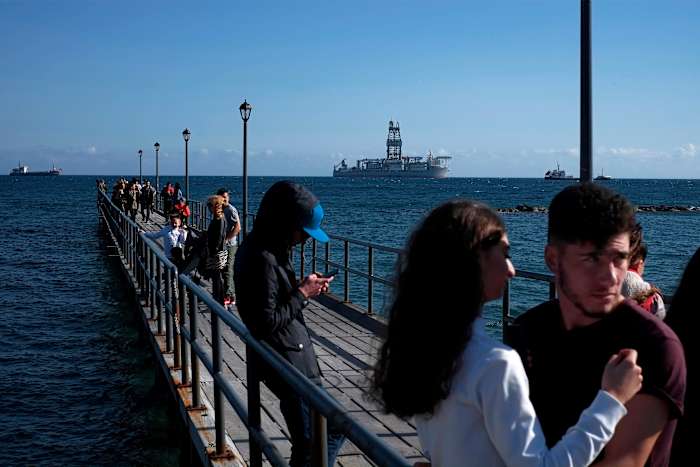ExxonMobil is exploring a partnership with a consortium comprising Eni from Italy and Total from France to develop natural gas deposits located off the southern coast of Cyprus, according to statements made by Cyprus’ energy minister on Friday.
ExxonMobil is currently engaged in discussions with the Eni-Total consortium regarding the development of their recently discovered gas deposits. These deposits, positioned in proximity to each other off the coast of Cyprus, present a unique opportunity for collaboration. Energy Minister George Papanastasiou highlighted that this potential partnership might gain significant momentum if ExxonMobil’s planned exploratory well, set to be drilled in the coming year, results in further hydrocarbon discoveries.
The geopolitical context adds urgency to these discussions. Cyprus officials have consistently pointed out that the development of offshore gas deposits could play a crucial role in securing alternative energy sources for Europe, especially in the backdrop of the ongoing conflict in Ukraine. Such developments could reduce Europe’s energy dependence and potentially stabilize the regional energy market.
ExxonMobil’s Vice President for Global Exploration, John Ardill, has been actively involved in talks with Cypriot President Nikos Christodoulides. These discussions emphasize the strategic importance of gas exploration for the region and its potential implications for the energy landscape in Europe.
Looking ahead, ExxonMobil plans to drill a new well, named Pegasus, close to the existing Glaucus site. The Glaucus deposit, which contains an estimated 5 to 8 trillion cubic feet of gas, is located in Block 10, an area where ExxonMobil and Qatar Petroleum hold exploration licenses. Both this block and Block 6, where the Eni-Total consortium discovered the Cronos deposit, which holds approximately 2.5 trillion cubic feet of gas, are central to these exploration efforts.
Minister Papanastasiou noted the possibility of establishing infrastructure to connect these deposits should the Pegasus site yield adequate gas reserves. Such infrastructure would be pivotal in streamlining operations and facilitating efficient resource management across the region.
ExxonMobil also has plans to initiate drilling operations in Block 5, north of Block 10, early next year. Known as the Electra well, this site is adjacent to strategic areas identified for exploration. Once assessments of these wells are finalized by mid-next year, ExxonMobil will evaluate various development options. These could include converting the gas to liquid form via seaborne installations or processing it at an onshore facility within Cyprus to meet local energy demand and for potential export.
Additionally, Cyprus is in preliminary discussions with several energy corporations from Persian Gulf nations to explore further opportunities within its exclusive economic zone. These developments could open new paths for energy exploration and production, positioning Cyprus as a significant player in the energy sector.
The potential collaboration between ExxonMobil, Eni, and Total signifies a step forward in realizing Cyprus’s energy aspirations. With promising deposits and strategic alliances, Cyprus stands poised to strengthen its role in the regional energy landscape, offering a beacon of energy security for Europe amidst global uncertainties.
Source: News4jax








